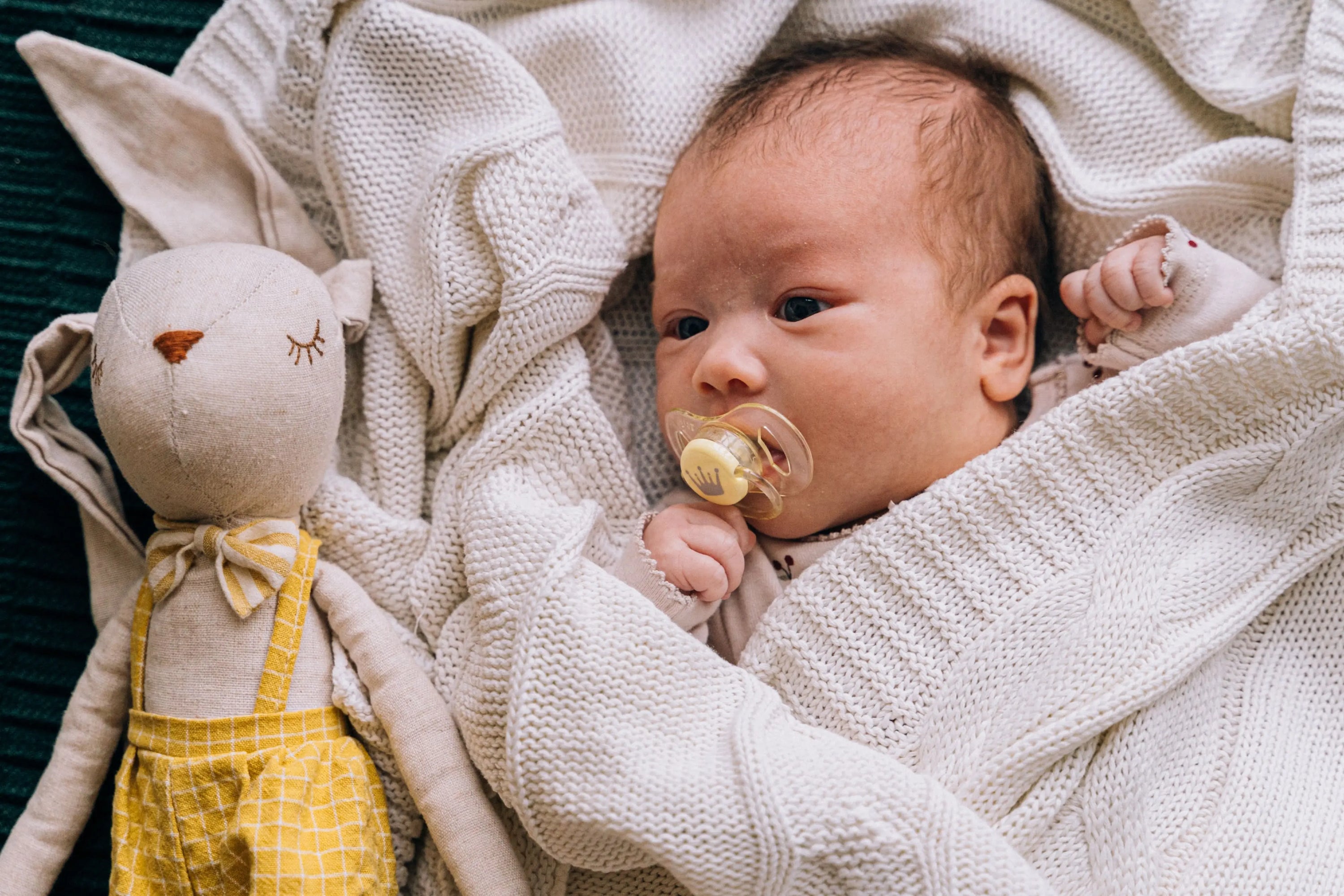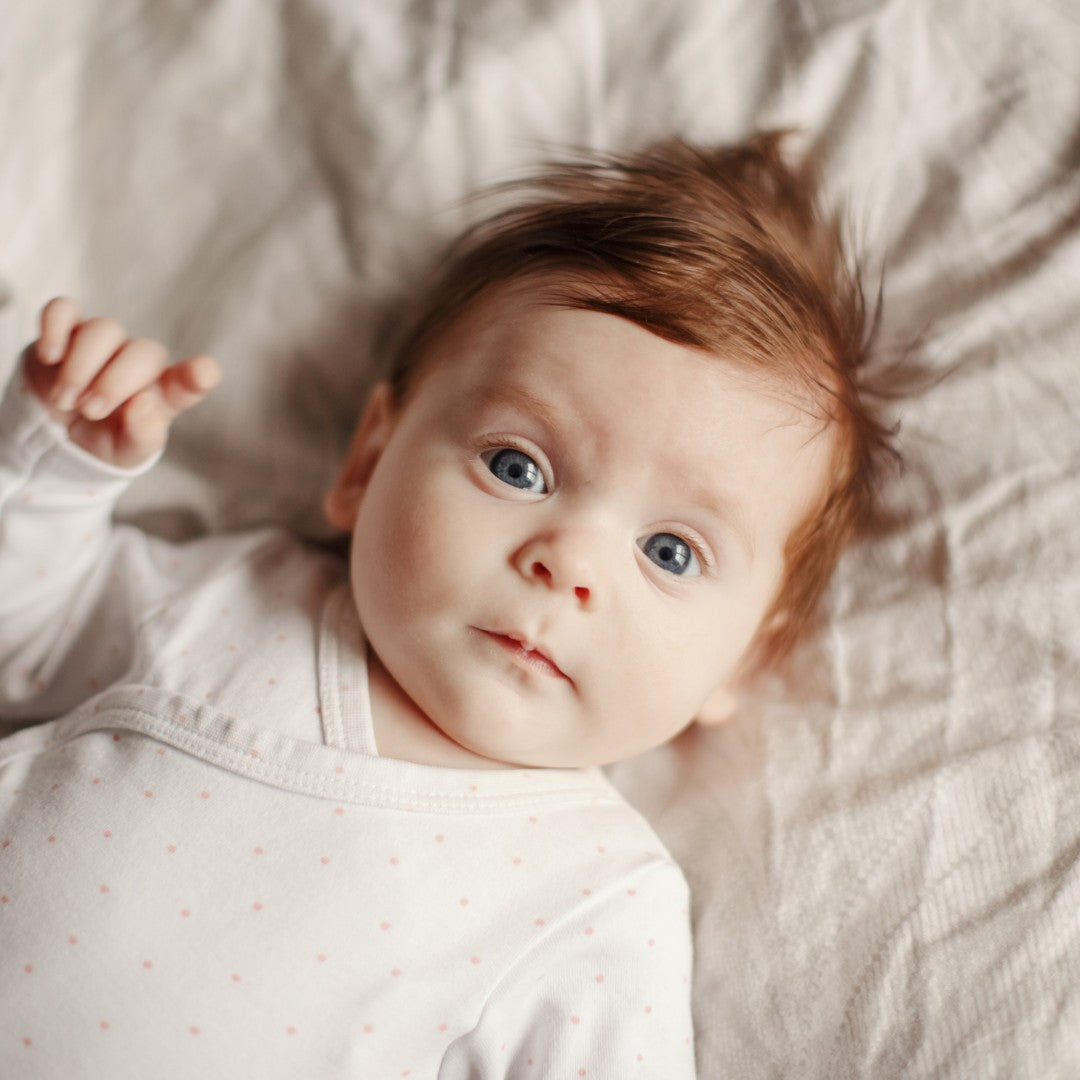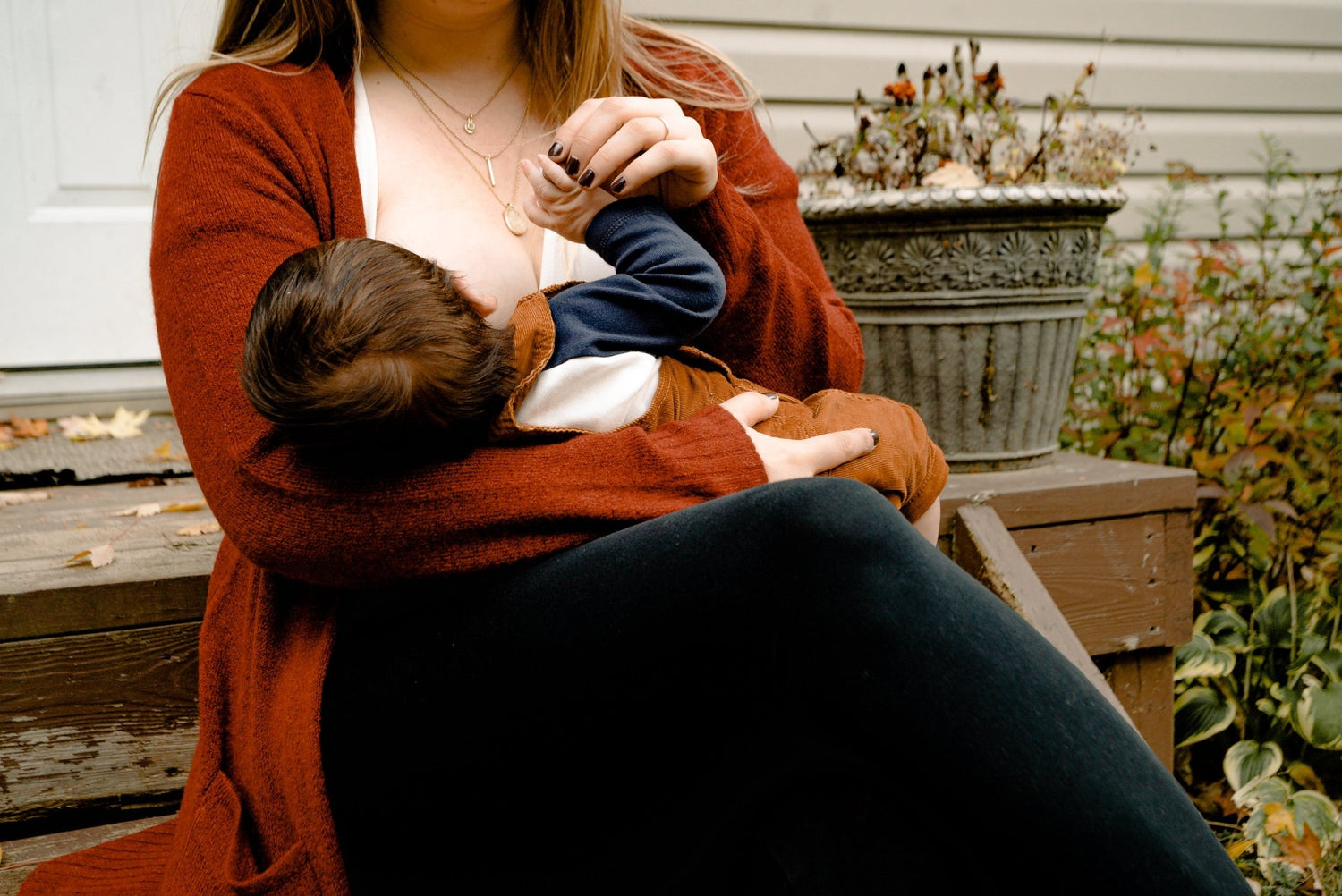Does my baby need a pacifier?
You are probably familiar with the situation: your baby is restless, cannot be calmed down and simply cannot fall asleep. In such moments, a pacifier can be of great help. But did you know that a pacifier not only helps your baby fall asleep, but also offers other important benefits? In this article you will learn why babies need a pacifier and how to choose the right pacifier for your baby.
Table of contents:
|

1. Why babies need a pacifier
A pacifier provides reassurance and comfort for your baby. It gives the baby a feeling of safety and security, similar to suckling at the breast. Sucking on a pacifier makes it easier for your baby to relax and relieve stress.
In addition, the pacifier helps with falling asleep and staying asleep. Rhythmically sucking on the pacifier has a calming effect and can help your baby fall asleep more quickly. It can also help reduce nighttime interruptions because sucking on the pacifier gives the baby a sense of continuity.
Another important aspect is that the pacifier can reduce the risk of sudden infant death syndrome (SIDS). Studies have shown that sucking on a pacifier can reduce the risk of sudden infant death syndrome by up to 90 percent. The exact mechanism behind this effect is not yet fully understood, but it is thought that suckling regulates the baby's breathing and heartbeat.
2. The different types of pacifiers
There are different types of pacifiers you can choose for your baby. Here are the most common types:
- Classic Pacifiers: These pacifiers have a round, symmetrical shape and are good for babies who prefer thumb sucking.
- Dental Pacifiers: These pacifiers have a flat, flattened shape that supports the development of the palate and teeth.
- Silicone pacifiers: Silicone pacifiers are soft and durable. They do not contain latex and are therefore ideal for babies with latex allergies.
- Latex pacifiers: Latex pacifiers are soft and flexible. They have a natural feel and are good for babies who like to suck harder.
3. Tips for choosing a pacifier
When choosing a pacifier for your baby, there are some important factors to consider:
- Baby's age: Make sure the pacifier is appropriate for your baby's age. There are pacifiers designed specifically for newborns as well as pacifiers for older babies.
- Size and shape of the pacifier: Choose a pacifier that fits well in your baby's mouth and does not cause discomfort.
- Pacifier material: Choose a material that is suitable for your baby. Silicone and latex are common materials used for pacifiers.
- Hygienic aspects: Make sure that the pacifier is easy to clean and does not contain any harmful substances.
4. Advantages and disadvantages that must be taken into account
Here are some important aspects to consider when giving your baby a pacifier.
4.1. Advantages of the pacifier
- Calming and comforting the baby: The pacifier can help the baby calm down and find comfort, especially in situations such as falling asleep, restlessness or pain.
- Support in falling asleep and staying asleep: By sucking on a pacifier, the baby can fall asleep more easily and possibly stay asleep longer due to the calming effect.
- Reducing the risk of sudden infant death syndrome: Studies have shown that using a pacifier while sleeping can reduce the risk of sudden infant death syndrome.
4.2. Disadvantages of the pacifier:
- Possible dependence on the pacifier: If used excessively or for a long time, there is a risk that your baby will have difficulty separating from the pacifier as he or she gets older.
- Possible effects on breastfeeding: If the pacifier is introduced too early or too often, this can affect the baby's sucking behavior and make breastfeeding more difficult.
- Risk of teeth and jaw problems with prolonged use: If the baby sucks intensively on the pacifier for a long period of time, there is a risk of misaligned teeth and jaw problems.
It is important that you weigh the advantages and disadvantages and decide individually for your baby whether the pacifier is suitable. Proper use of the pacifier and timely weaning can help minimize possible disadvantages.
5. Wean off the pacifier
At some point it will be time to wean your baby off the pacifier in order to avoid possible disadvantages. Choose a time that suits you and your baby. This can be, for example, the time when your baby gets older or is less dependent on the pacifier because, for example, it finds its way into bed without a sleep aid. You can also reduce pacifier time slowly: gradually replace the pacifier with other alternative soothing aids to allow for a smooth transition. This could be, for example, a cuddly toy or calming music playing quietly in the background.
It's important to be patient and respect your baby's pace as they adjust to the changes.




